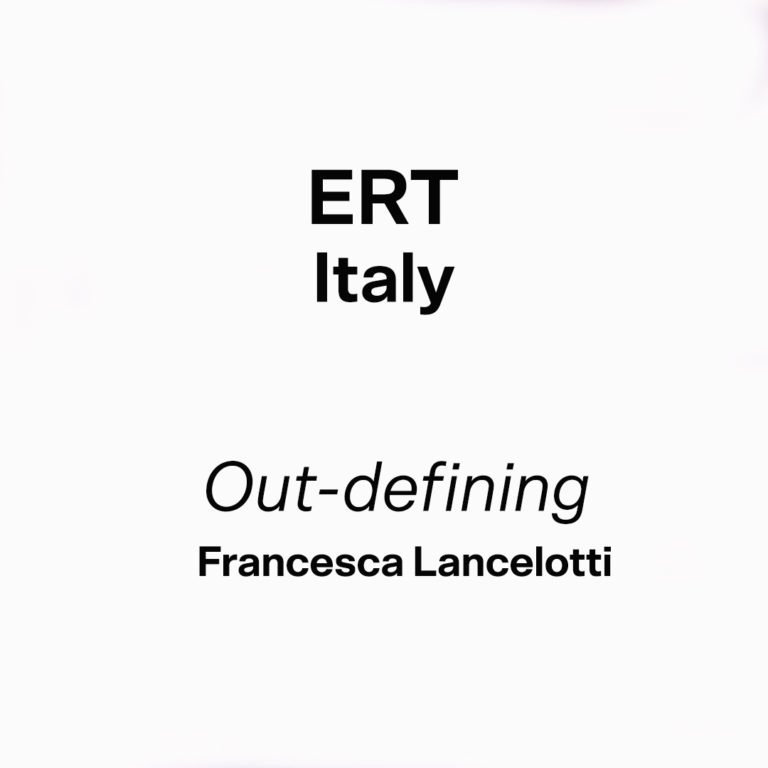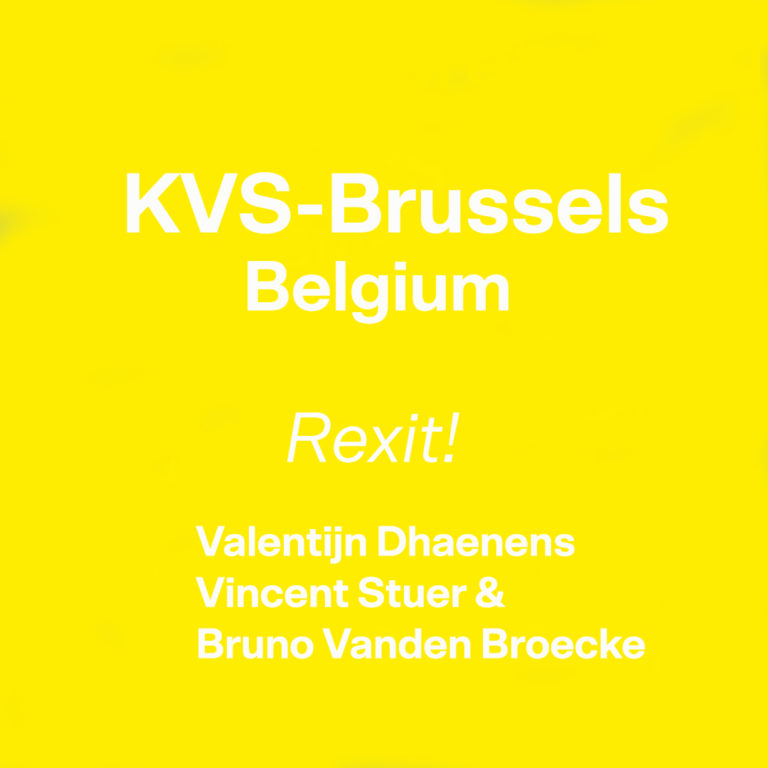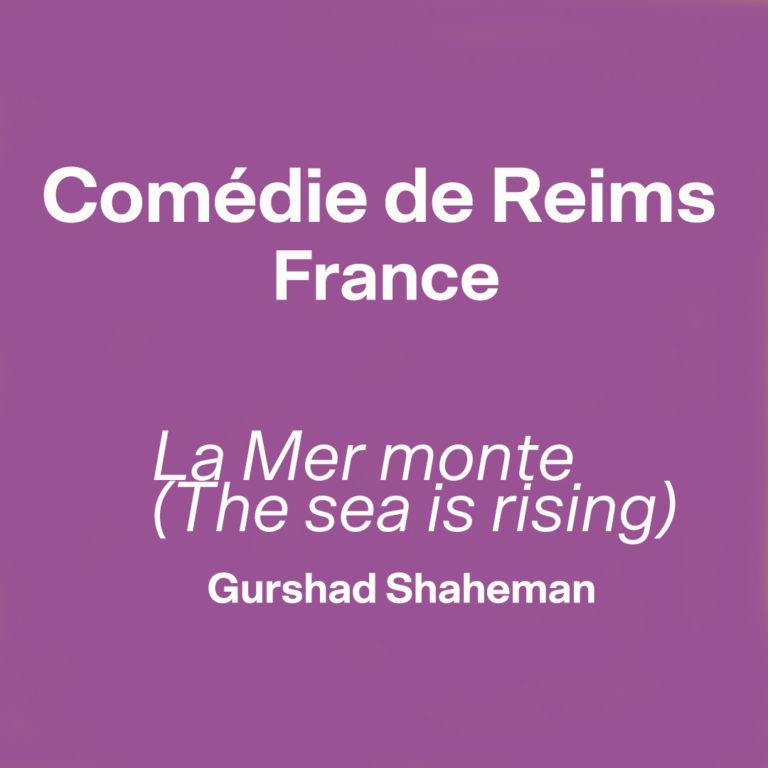26th June 2024 | Theatre for Democracy
Out-defining
text selected by Emilia Romagna Teatro ERT / Teatro Nazionale (IT) within the course Drammaturgie: Advanced training in theatre writing co-financed by the European Social Fund, Regione Emilia-Romagna
reading of the text written by Francesca Lancelotti by Giulia Valenti, Stefano Moretti and Giusto Cucchiarini
follows a discussion with the actors, the author and Rita Monticelli
To get rid of labels and judgments, was founded the Academy against censorship, committed to eliminate all forms of “qualifying” language. The new law prohibits the use of singulars, adjectives, some numbers and verb tenses: little by little, conversations become impossible, individualities disappear, the past is pushed to oblivion and every thought is reduced to a minimum. The ultimate goal of the Congress is to erase the pain and suffering risen by human interaction. But if the individuality is prevented from expressing itself and diversity is abolished, can we still talk about relationships and inclusiveness? Can there be democracy without dialogue and conflict? What is equality without the protection and enhancement of diversity?
These and other questions light up between the lines of a text with paradoxical hues, set in a very near future, in which the ambition for absolute happiness pours into forms of excessive control of the other, of emotions, of oneself.


3rd July 2024 | Theatre for Democracy
REXIT!
text commissioned by KVS – Brussels (BE)
reading of the text written by Valentijn Dhaenens, Vincent Stuer & Bruno Vanden Broecke by Stefano Moretti and Jacopo Trebbi
follows a discussion with the journalist Marino Sinibaldi
It is 1940 and Germany declares war on Belgium: in order to continue the fight against Nazi-fascism, the Belgian government is forced to flee the country. However, King Leopold III, commander-in-chief of the army, seems unavailable and unreachable. Finally, after several searches, it’s revealed that he hid in Wijnendaele Castle in Torhou, with the intention of not leaving his State. Foreign Minister Paul Henry Spaak visited him to convince him to go into exile for the good of the Belgian people. In three conversations, during and after the war, the ambiguities of power and its exercise for personal purposes emerge, to reflect on the themes of nationalism, corruption and ideological drifts.
10th July 2024 | Theatre for Democracy
La Mer monte (The sea is rising)
text commissioned by Comédie de Reims (FR)
reading of the text written by Gurshad Shaheman by Stefano Moretti and Jacopo Trebbi
follows a discussion with the journalist and writer Christian Raimo
Yashar, 45, and Amer, 29, are two actors from the Middle East, born and raised in France, a State they recognize as their home. However, many others do not think the same: they tell this to the public in three monologues, in which they narrate some emblematic episodes of their life in France, including demonstrations for civil rights, racist insults, homophobic prejudices and brutal beatings that almost cost Amer his life. Although there is no resignation but the urgency of continuing to fight by promoting the values of respect, tolerance and equality, their words reveal a pain so deep that it leaves indelible traces on their identity and their daily lives.


10th July 2024 | Theatre for Democracy
93 metres d’eslora (93 meters long)
text commissioned by Teatre Nacional de Catalunya (ES)
reading of the text written by Denise Duncan by Stefano Moretti and Jacopo Trebbi
Waiting for an interview with important businessmen for the purchase of a yacht, the Spanish Prime Minister and the Candidate – in very expensive casual clothes and sipping a fine wine – meet and begin a conversation: from the first words of circumstance, we move on to topical political topics, treated through the filter of a patriotic and nationalist thought, in which power is exercised for the purpose of assertion and supremacy over other governments, regions and minorities. The dialogue between the two politicians, although painted by an underlying competition, seems to go on well until the Candidate reveals prejudices against the ethnic origins of the Prime Minister.




